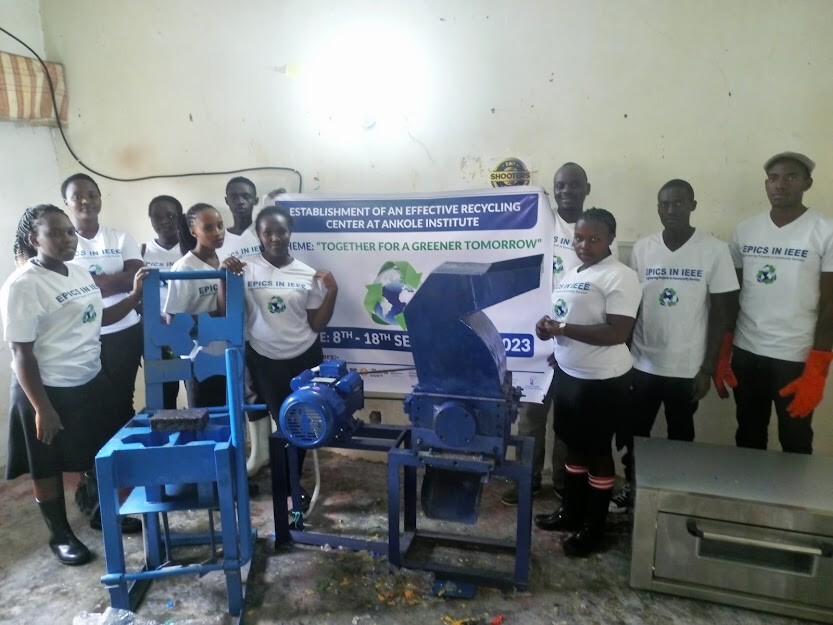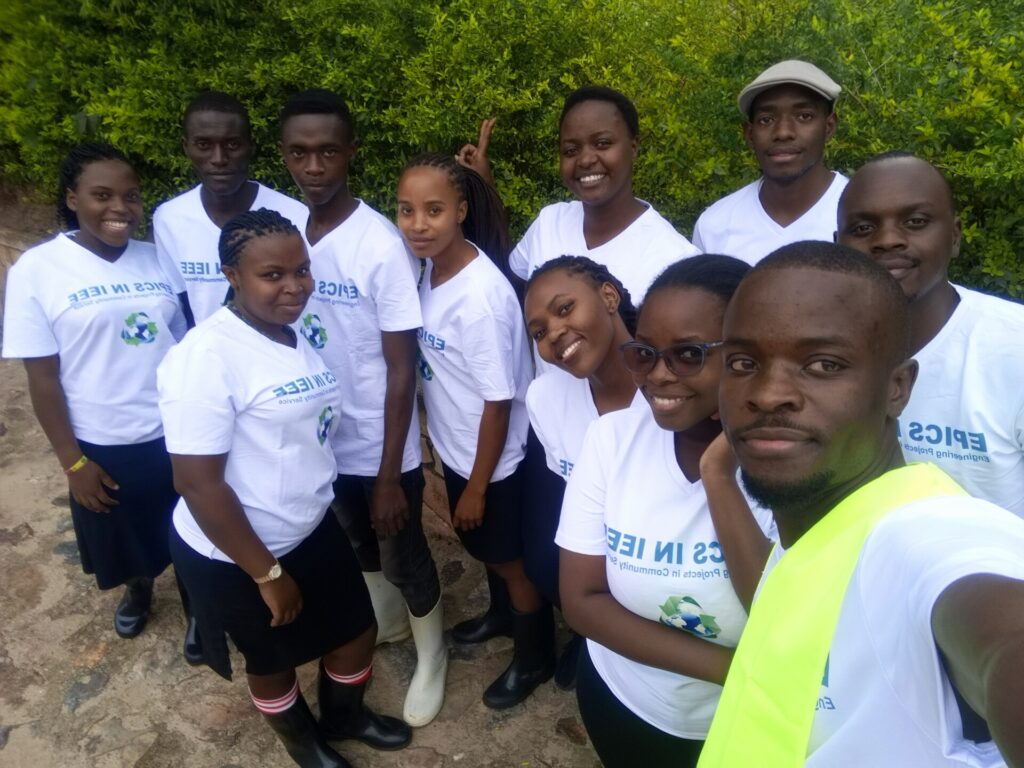With support from EPICS in IEEE, the “Establishment of an Effective Recycling Center at Ankole Institute” initiative is helping communities in Uganda to reduce plastic waste while boosting their economy
Studies estimate that the world generates over 350 million tons of plastic waste each year, some 8 million tons of which end up polluting the world’s oceans, rivers, and other waterways.
It’s a reality that Antony Tumwebaze, IEEE member and graduate student at Kyambogo University in Uganda, could no longer stand to watch, especially given its fallout on the nearby Ankole Institute in southwestern Uganda and highly populated surrounding areas.
“This was a pressing issue, as there had been consistent reports about the River Rwizi, which serves as the main source of water for people in many communities along its path, choking on plastic waste,” Tumwebaze shared. “I was concerned about the environmental impact and potential harm to the community and felt compelled to take action.”

Tumwebaze did just that by conceiving of a new plastic recycling process in those communities. And as leader of a project called “Establishment of an Effective Recycling Center at Ankole Institute” since February 2023, Tumwebaze successfully applied for and received funding from “EPICS (Engineering Projects in Community Service) in IEEE,” an initiative that provides opportunities for students to work proactively with both engineering professionals and technological innovation to develop solutions that address global community challenges.
A Win-Win Initiative
Working with Nakawa Institute Technicians and the IEEE Section-Uganda, “the project involves a plastic shredding machine that’s designed to break down plastic materials into smaller, more manageable pieces for recycling using a combination of mechanical components and cutting tools,” Tumwebaze said. “The plastic shredder incorporates a high-torque motor to drive a rotating shaft or set of blades, which are made of hardened steel for enhanced durability,” he explained, “and the shredder is equipped with a screen or sieves to separate different-sized plastics from each other inside the shredding chamber; this yields a uniform size for the recycling process, which then melts the pieces to obtain a paste-like material that’s converted into pavers.”
According to Tumwebaze, the project has impacted the community in many positive ways.
“First and foremost, this project has brought about community engagement and awareness among local residents regarding the dangers of plastic waste in the environment,” he said. “Community members now actively participate in recycling activities, which is steadily leading to more responsible waste management practices and greater environmental conservation.” The activity has also yielded economic benefits, he said, “as the project is slowly creating jobs for community members in terms of the collection and sorting of plastics for recycling as well as the sale of plastic pavers, which represents a new product being produced and consumed by the local market.” At Ankole Institute, a mixed institute in Uganda’s western region–Isingiro district that strives to equip youth with vocational hands-on skills useful in life, Tumwebaze noted that the project aligns with the organization’s sustainability goals and is serving as an educational tool that’s helping local students, residents, and organizations alike to understand the importance and benefits of recycling to the environment.
Looking ahead, “we hope to expand our plastic recycling initiative to cover additional communities along the River Rwizi,” Tumwebaze said. “This will involve enhancing the capacity of our Recycling Center by replacing the commercial oven currently used to melt shredded plastic with a plastic extruder that will enable larger quantities of plastic to be recycled every day. With the help of the organization Changing Lives Uganda, we plan to engage with residents of these communities to gain their full support, which is key to the project’s sustainability and effectiveness.”
A Transformative Journey
While he confirmed that obstacles along the way (including rising component prices and difficulty sourcing certain products from suppliers) challenged the team’s ability to bring their vision to reality, Tumwebaze said that the project was an incredibly positive and rewarding learning experience that strengthened his engineering, problem-solving, and project management skills.

“This has been a transformative journey characterized by diverse skill acquisition and profound insights,” Tumwebaze confirmed. “Through this initiative, I gained hands-on experience in constructing the project’s machines and mastered valuable skills related to materials, machinery, and safety protocols – all of which ignited my passion for environmental sustainability and community economic growth. In the future, I look forward to being a telecommunications engineer working at the intersection of technology and ecology and harnessing the power of telecommunications to develop and implement eco-friendly solutions.”
On behalf of himself and his team, “we’d like to express our heartfelt appreciation for EPICS In IEEE’s generous funding and support for our project,” Tumwebaze said. “IEEE’s belief in our vision and dedication to making it a reality has been instrumental in our journey, not only by easing our financial burden but also by motivating us to work harder to deliver impactful results. We’re truly grateful for IEEE’s commitment to and belief in our project’s potential and would absolutely recommend EPICS in IEEE to fellow colleagues and university students based on the program’s outstanding support for ideas that can have a positive impact on communities and the environments we live in.”

Trackbacks/Pingbacks